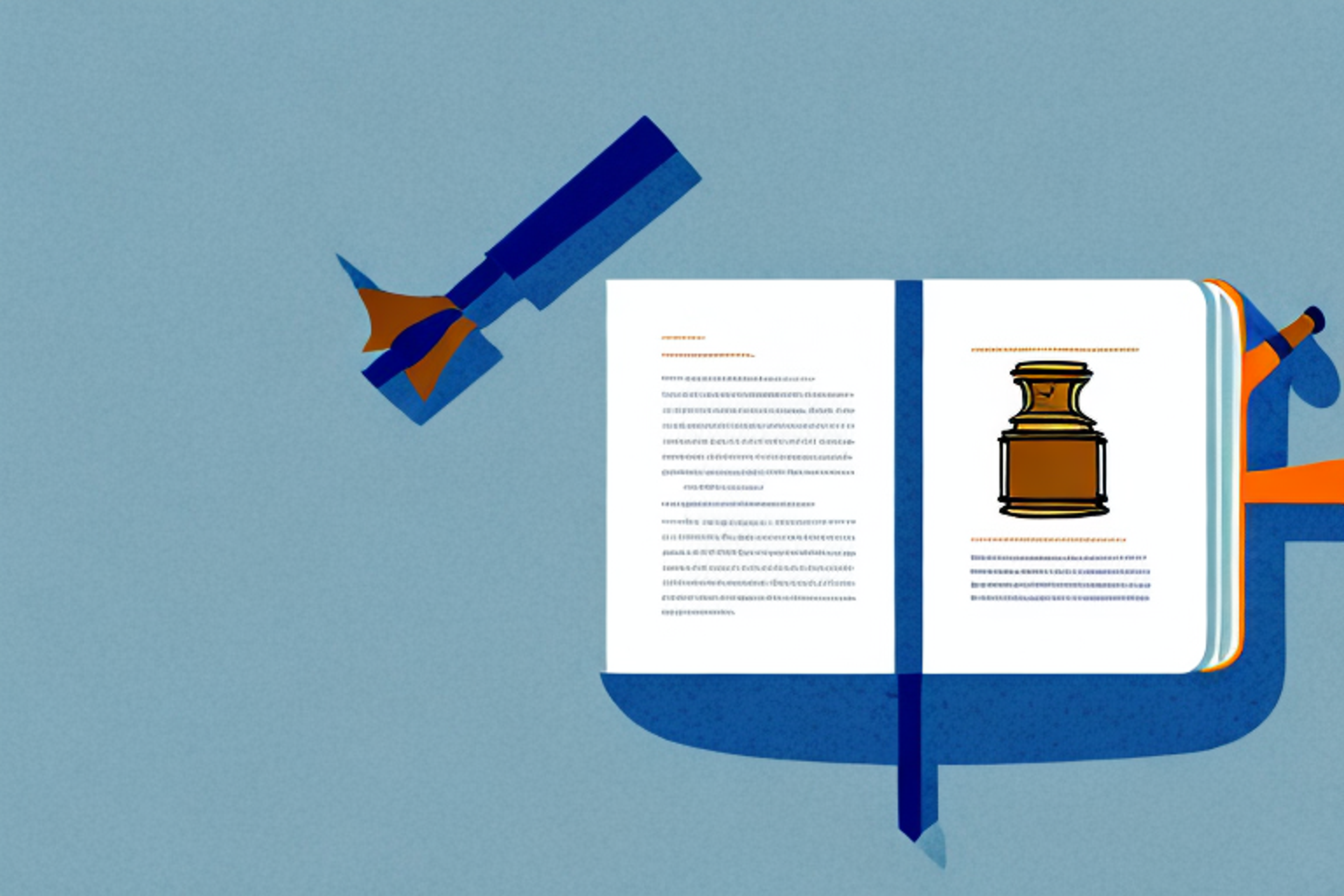UCLA Law Personal Statement Guide: Examples & Admit Tips
Learn how to write your standout personal statement and essays for UCLA Law with expert tips, examples, and strategies that highlight your unique story.
Posted August 25, 2025

Join a free event
Learn from top coaches and industry experts in live, interactive sessions you can join for free.
Table of Contents
Writing your personal statement for UCLA Law can feel like a high-stakes puzzle. How do you fit your life, values, and ambition into two pages that actually stand out? You’re not alone. The admissions committee reads thousands of essays from smart, qualified applicants. What makes yours memorable isn’t a perfect resume but a clear, honest story about who you are and why law matters to you.
In this guide, we’ll walk through how to craft a personal statement that’s not only strategic and well-structured, but also authentically you.
Read: Law School Personal Statement Format & Length: Guide & Tips
How to Write a Standout Personal Statement for UCLA School of Law
Your personal statement is one of the most powerful parts of your law school application, especially at top programs like the University of California–Los Angeles (UCLA) School of Law. It’s your chance to show the admissions committee who you are beyond your resume and transcripts. More than just an essay, your personal statement and essays reveal the personal qualities, motivations, and experiences that make you a compelling future legal professional.
This guide breaks down exactly how to write a personal statement essay that captures your story, aligns with UCLA's values, and sets you apart from other applicants. We’ll cover everything from choosing strong essay topics to showcasing your writing style, and we'll include relevant personal statement examples and insights that reflect the expectations of top law schools.
Read: How to Write a Powerful Personal Statement for Your Law School Applications
What Makes the UCLA Law Personal Statement Unique?
Unlike a generic college essay, the UCLA Law personal statement is a strategic tool that gives the admissions committee insight into your background, perspective, and potential contributions to the UCLA community.
UCLA requires two categories of written statements:
- Statement of Purpose - Focuses on your academic interests and career goals.
- Personal Statement - Emphasizes your journey, personal characteristics, and the context of your achievements.
Understanding this distinction is critical to tailoring your message. While many colleges blend these into one main essay, UCLA asks for both. That means your personal statement should not only be polished, but it should be purposeful.
Powerful Topics for Your Personal Statement
Your topic is the foundation of your essay. Great personal statement examples often begin with a formative experience, a challenge you overcame, or a unique perspective shaped by your upbringing.
Here are a few effective angles:
- A moment when you discovered your passion for law (e.g., during a history class or volunteer work)
- A personal or family challenge that revealed your core values
- A real-world problem you want to solve through legal work
- A cause or community that shaped your worldview
Think of your personal statement as the opening paragraph to your future career—it should spark the reader’s attention, provide a clearer picture of who you are, and preview how your life experiences connect to your career aspirations.
How to Structure Your Essay Like a Story
An outstanding personal statement doesn’t read like a resume summary—it reads like a story with stakes, reflection, and purpose. Top admissions officers at UCLA and other elite law schools are looking for more than academic success. They want to see how your lived experiences, perspective, and values align with the legal profession—and how well you can communicate that through narrative.
Here’s a proven structure many successful applicants use:
- Hook: Start with a compelling moment—an anecdote, vivid scene, or surprising insight that grabs the reader’s attention. It should immediately signal, “This applicant is different.”
Example: “The first time I stepped into a courtroom, I wasn’t a student; I was translating for my mother during her custody hearing.” This pulls the reader into a real, emotional moment that reveals something about the applicant’s background and motivation.
- Context: Unpack what happened and why it mattered. Focus on pivotal moments that reveal your growth, resilience, or moral compass. Don’t be afraid to show vulnerability—admissions committees are looking for humanity, not perfection.
Example: “After that day in court, I began volunteering at a local immigrant advocacy nonprofit. I realized the law could either empower or silence people, depending on whether they had someone who understood it standing beside them.”
- Reflection: This is where you show maturity and depth. How did the experience shape your thinking? What values or insights did you gain? How did it influence your career goals or sense of purpose?
Example: “I used to think advocacy meant speaking for others. But I learned that true advocacy means creating space for others to speak and making sure they’re heard.”
- Connection: Tie everything back to law—and specifically to UCLA. How did this experience lead you to pursue legal studies? Why is UCLA the right place to continue that journey? Referencing specific clinics, faculty, or programs helps reinforce fit.
Example: “UCLA’s Immigrant Family Legal Clinic aligns perfectly with my goals not only because of its community-based approach, but because it treats language access as a core issue of justice.”
Expert Tip: Don’t just say you’re passionate about law—demonstrate it through concrete detail. For example, instead of writing “I care deeply about justice,” show us the time you organized a student-led legal aid drive or translated for families during immigration hearings. Specificity is your credibility.
How to Highlight Your Academic and Professional Journey
When reviewing your personal statement, the admissions committee isn’t just evaluating what you’ve done; they’re looking for evidence of how your academic and professional experiences have prepared you for law school and positioned you for long-term success in the legal field. To stand out, go beyond listing achievements. Instead, curate and connect the most meaningful moments in your academic journey that demonstrate intellectual curiosity, discipline, and a deepening commitment to law. Highlight rigorous coursework, particularly in writing-intensive or analytical subjects; mention any honors, fellowships, or standout research projects, especially those related to your particular field of interest. Capstone papers, independent studies, or faculty-led research can also signal your ability to thrive in a demanding academic environment.
Just as important is the way you frame your professional experiences—even if they’re not directly related to law. Admissions officers value transferable skills. Whether you worked as a paralegal, interned at a nonprofit, or led a team in a part-time job, focus on how those roles built your capacity for problem-solving, critical thinking, collaboration, and resilience. If you’ve written a cover letter for legal internships or jobs, borrow language that articulates your strengths and shows alignment with UCLA Law’s mission. Use this section to show—not just tell—that you’re prepared for the rigor of law school and already thinking like a future legal professional.
How Background Shapes Perspective
At UCLA School of Law, diversity is a core value. The admissions committee looks for students whose lived experiences, identities, and perspectives will enrich the classroom and legal field. If you’ve grown up navigating systemic inequities, are the child of a family member who immigrated, identify with an underrepresented group, or have carved your own path as a first-generation college student, those experiences are not just relevant—they’re essential to include.
This is your opportunity to reflect meaningfully on the moments that shaped your worldview and deepened your interest in law. Perhaps you launched a community initiative of your own design, mentored younger students in your neighborhood, or helped translate documents for your parents—seemingly small acts that point to larger values of leadership, service, and justice. Maybe a pivotal conversation with a best friend or mentor shifted how you saw your future. Or maybe your understanding of the law emerged not in a classroom, but through lived experience—interacting with legal systems in your everyday life or advocating for your community.
What matters most is how you connect these moments to your decision to pursue law and to UCLA specifically. When done well, this section doesn’t just add context to your application; it shows that you’ll bring voice, insight, and value to the broader legal community.
Career Goals with Clarity
What do you want to do with your law degree? Be specific—and purposeful. Clear, well-defined goals demonstrate maturity, direction, and alignment with the profession.
Good: "I want to work in immigration law to advocate for families navigating the asylum system." Vague: "I want to help people."
Strong personal statements not only articulate what you want to do, but why—and how UCLA Law will help you get there. Draw clear connections between your goals and the school’s unique offerings. For example:
"I hope to join the International Human Rights Clinic to apply legal theory in real-world contexts and build direct service experience before pursuing impact litigation." "Through the Criminal Justice Program, I aim to deepen my expertise in public defense and work alongside faculty whose research aligns with my interest in decarceration policy."
Admissions officers are drawn to applicants who demonstrate intentionality, self-awareness, and program fit. Specific career goals show you're not just interested in law—you’re ready to contribute meaningfully to the legal field.
Admit Tips for Writing a Personal Statement That Stands Out
Even with strong credentials, a flat or generic essay can sink your application. These expert-backed strategies will help you craft a personal statement that’s clear, authentic, and truly memorable to the admissions committee.
Tailor Your Statement to UCLA
Generic essays fall flat, especially at competitive programs like the UCLA School of Law. To stand out, demonstrate that you’ve done your homework. Refer to specific clinics, professors, research centers, or student organizations that align with your goals. This doesn’t just show interest, it signals intentionality and program fit, two qualities that admissions officers value highly.
Embrace the Messy First Draft
The strongest personal statements rarely start strong. Begin with a raw, unfiltered draft that gets your ideas out, then revise ruthlessly. Focus your second and third drafts on structure, tone, and flow. Look for narrative clarity, emotional depth, and cohesion across paragraphs. A polished essay is the result of disciplined rewriting, not perfection on the first try.
Lead with Your Voice
One of the most common mistakes applicants make is writing in a voice they think admissions committees want to hear: overly formal, distant, or robotic. In reality, authenticity is far more compelling. Let your natural writing style come through, even if it’s more conversational. Confidence, self-awareness, and clarity will always outshine jargon or stiffness.
Replace the Clichés with Real Insight
Admissions officers read thousands of essays. Phrases like “I’ve always wanted to be a lawyer” or “I want to make a difference” are so common they’ve lost meaning. Instead, tell a specific story or describe a moment that illustrates your motivation. Unique details, honest reflection, and a clear narrative beat vague generalizations every time.
Get Thoughtful, Strategic Feedback
No one writes a great personal statement in isolation. Seek feedback from people who understand the law school admissions process: professors, mentors, or peers with strong writing instincts. Even better, work with an admissions coach who’s helped students craft statements that led to acceptances at top programs. The right feedback can sharpen your message, elevate your voice, and catch blind spots you might miss on your own.
Common Mistakes to Avoid in the College Application Process
- Turning your personal statement into a second resume - Listing accomplishments without context or reflection misses the point. The personal statement is about meaning, not metrics. Focus on why your experiences matter, not just what they were.
- Editing your voice out of the essay - Over-revising or outsourcing too much can strip your writing of authenticity. A polished essay should still sound like you: honest, reflective, and confident.
- Failing to show UCLA-specific alignment - Admissions officers want to know why their program. If you don’t mention clinics, faculty, or values unique to UCLA Law, you miss the chance to demonstrate genuine fit.
- Neglecting basic proofreading - Typos, awkward sentences, or inconsistent formatting signal a lack of care. Read your final draft out loud, and consider tools or readers who can help with a final quality check.
- Overlooking optional essays and supplemental materials - Optional doesn’t mean unimportant. Skipping the diversity statement, addenda, or other application materials can leave gaps in your narrative and hurt your chances.
Avoiding these pitfalls can be just as powerful as nailing your main essay. A thoughtful, complete, and school-aligned application is what ultimately moves you forward.
Final Touches: Editing and Submitting
- Format your essay with clear spacing and legible fonts, then save it as a PDF to preserve formatting.
- Confirm the exact prompt and requirements, as some schools require a different version of the statement.
- Stay within the word or page limit; exceeding it can signal poor judgment or failure to follow directions.
- Use professional, clearly labeled filenames (e.g., Lastname_UCLA_PersonalStatement.pdf).
- Submit all required and optional materials, including addenda and diversity statements, by the deadline.
- Tailor each personal statement to the specific school, even if you’re applying through the Common App or reusing material.
If you’re applying to multiple programs or through the Common App, make sure to customize each statement accordingly.
The Final Word: Make It Count
A compelling personal statement is your best opportunity to stand out in a highly competitive pool. With hundreds of qualified students applying, your story told in your own words is what makes you memorable.
If you want expert support on writing a personal statement, editing your first draft, or planning your college application process, work with a top law school admissions coach who's helped students get into UCLA and other top programs. Also, check out law school bootcamps and free events for more effective strategies.
See: The 10 Best Law School Coaches | Law School Admissions Consulting That Works
Read these next:
- The Top 10 Accelerated JD Programs
- Law School Addendum: Writing Tips and Samples
- LSAC Credential Assembly Service (CAS): What it Is and How It Works for Law School Applications
- How Many Law Schools You Should Apply To (& How to Choose One)
- What is URM for Law School?
FAQs
How long should my personal statement be for the UCLA School of Law?
- Keep it to two pages, double-spaced, unless otherwise specified.
Can I reuse my statement for other schools?
- Yes, but tweak it for each school. UCLA values program fit.
Should I include personal hardships?
- Only if they reveal your personal qualities or how you overcame challenges.
What’s more important, GPA or personal statement?
- Both matter. But a strong statement can elevate an average GPA.
Can I show emotion in my statement?
- Yes. A great essay often reflects vulnerability, growth, and authenticity.























